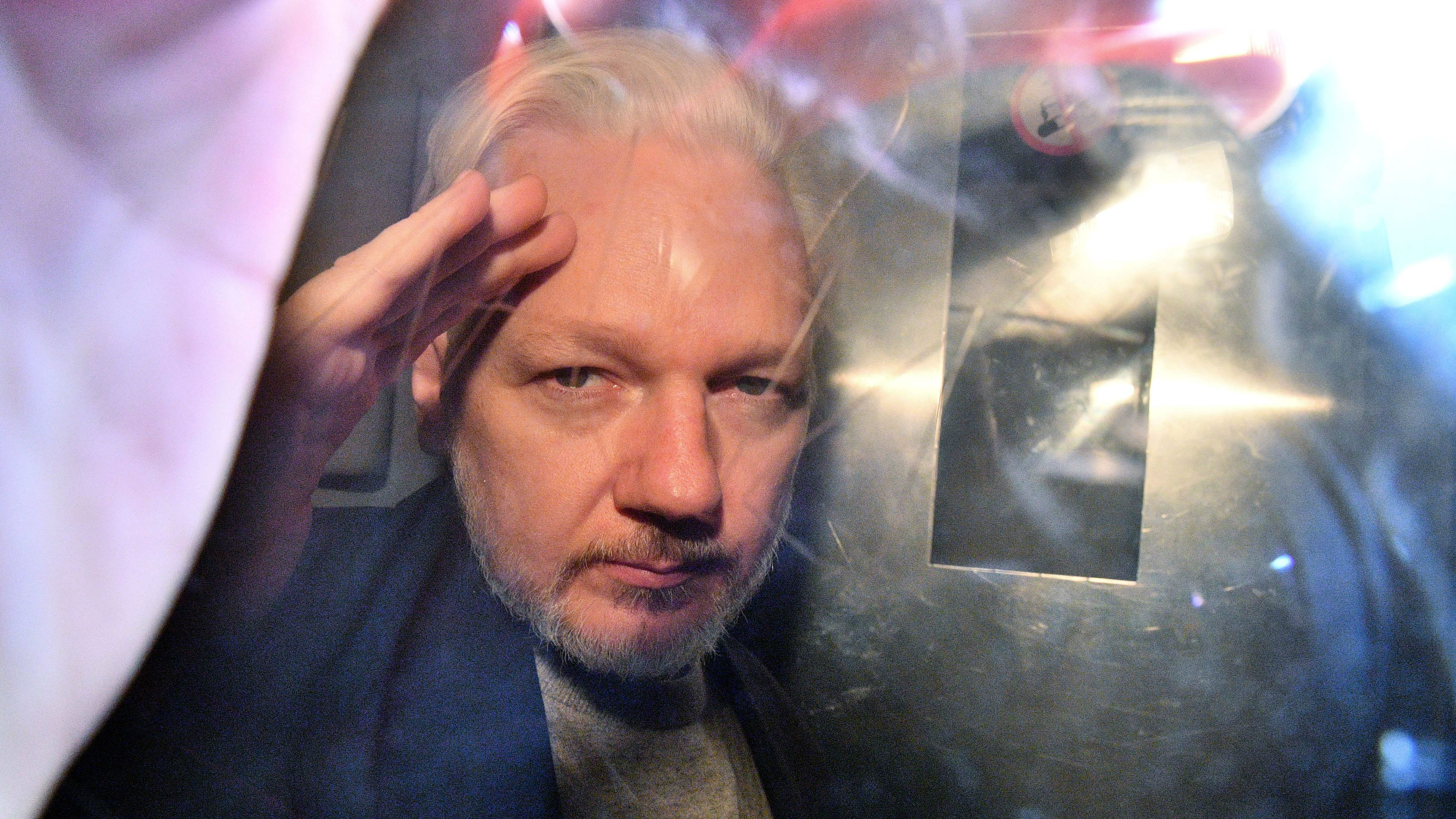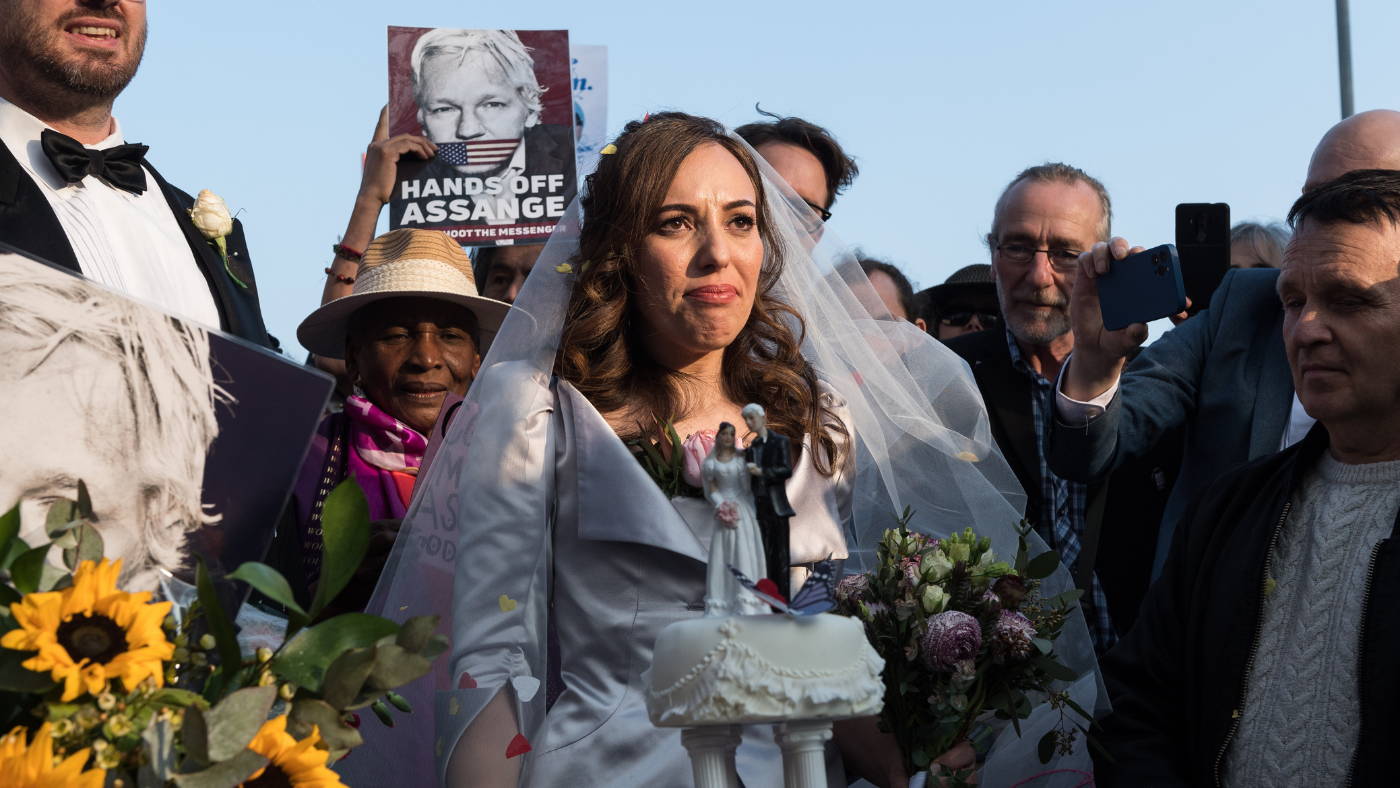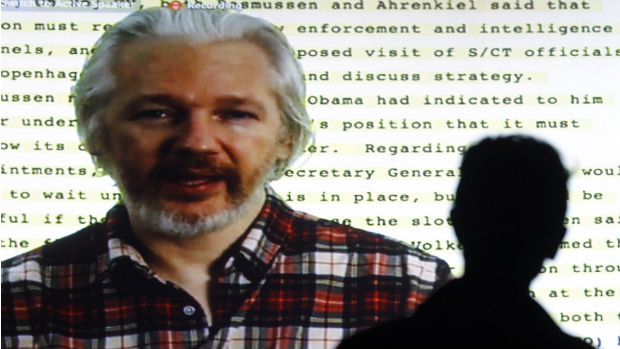Julian Assange extradition: what’s at stake?
Hearing in London kicks off ‘one of the most significant political trials of this generation’

A free daily email with the biggest news stories of the day – and the best features from TheWeek.com
You are now subscribed
Your newsletter sign-up was successful
Julian Assange’s extradition hearing begins today, as his lawyers go head-to-head with legal teams representing US authorities.
The US wants to try the WikiLeaks founder on espionage charges that carry a maximum prison sentence of 175 years over the publication of secret military documents and diplomatic cables.
Labour’s shadow chancellor John McDonnell has declared the case “one of the most important and significant political trials of this generation, if not longer”.
The Week
Escape your echo chamber. Get the facts behind the news, plus analysis from multiple perspectives.

Sign up for The Week's Free Newsletters
From our morning news briefing to a weekly Good News Newsletter, get the best of The Week delivered directly to your inbox.
From our morning news briefing to a weekly Good News Newsletter, get the best of The Week delivered directly to your inbox.
The charges
Assange was arrested in the UK almost ten years ago after Sweden issued an international arrest warrant over two allegations - one of rape and the other of molestation - by separate women.
The Australian national, now 48, denied the charges and claimed sanctuary in the Ecuadorian embassy in London for more than seven years. He insists the warrant was a ploy to have him extradited to the US for leaking confidential information including atrocities in the Afghanistan and Iraq wars.
Sweden has since dropped the charges, saying that while the evidence was still credible, so much time had passed that witnesses’ memories of the events had become hazy.
A free daily email with the biggest news stories of the day – and the best features from TheWeek.com
In May 2019, Assange was sentenced to 50 weeks in HMP Belmarsh for breaching his bail conditions. In the same month, he was indicted by the US Justice Department on 17 counts of violating the country’s Espionage Act 1917, which came on top of a previous hacking-related count.
Instead of being released from prison in the UK in September, Assange was kept in jail pending the US extradition hearing to ensure he did not abscond again.
The case begins today at Woolwich Crown Court in southeast London and is expected to be adjourned until May following a week of opening arguments. A ruling is not expected for several months, with the losing side likely to appeal.
Press freedoms
Barrister Jennifer Robinson, from Assange’s defence team, describes the “unprecedented case” as that of an award-winning journalist and Nobel Peace Prize nominee facing prison “for publishing truthful information”.
Speaking on BBC Radio 4’s Today programme on Monday morning, she said the case raises “fundamental questions about free speech” - and asked what message his extradition might send to countries such as Saudi Arabia, Russia and China.
Robinson warned that publications such as The Guardian and The Daily Telegraph, which partnered with WikiLeaks, could also face prosecution in the future, depending on the outcome of the hearing.
The Guardian’s Roy Greenslade agrees that prosecution would “set a terrible precedent”.
“The aim is to prevent whistle-blowers from telling the truth and journalists from giving them a platform,” he says.
The US-UK imbalance
In an editorial today, The Telegraph says the case also raises “questions over the balance of power in the 2003 Extradition Treaty between the UK and the US”.
The family of Harry Dunn has asked the UK government to block Assange’s extradition until the US returns Anne Sacoolas, the diplomat’s wife suspected of causing the teenager’s death by dangerous driving. She fled to the US following the collision in Northamptonshire last August, and has claimed diplomatic immunity to avoid extradition.
Prime Minister Boris Johnson “has conceded that elements of the extradition relationship between Britain and the US are ‘unbalanced’, though he has insisted the question of diplomatic immunity is separate”, says The Telegraph.
But according the newspaper, “the country may not see it that way if Assange is extradited yet the Dunn family receive no justice”.
–––––––––––––––––––––––––––––––For a round-up of the most important stories from around the world - and a concise, refreshing and balanced take on the week’s news agenda - try The Week magazine. Start your trial subscription today –––––––––––––––––––––––––––––––
Implications of acquittal
The Daily Mail’s Guy Adams says there are a couple of major holes in Assange’s defence. Although the WikiLeaks founder’s supporters insist his exposes are comparable to those of traditional investigative reporters, Adams says: “Unlike a responsible journalist, he did nothing to check, analyse, or redact the information he obtained before publication.”
The US claims that the lives of US intelligence sources across the world were endangered as a result.
And while a key argument against Assange’s extradition is that he will not receive a fair trial in the US, Adams notes that “America has some of the strongest free speech laws in the world thanks to the First Amendment”.
Many observers think Assange could be acquitted of the espionage charges if he is extradited, says Adams. “That is an outcome that would strengthen rather than weaken Western democracy and empower journalists and others who seek to hold our ruling class to account,” he concludes.
-
 Elon Musk’s pivot from Mars to the moon
Elon Musk’s pivot from Mars to the moonIn the Spotlight SpaceX shifts focus with IPO approaching
-
 ‘Hong Kong is stable because it has been muzzled’
‘Hong Kong is stable because it has been muzzled’Instant Opinion Opinion, comment and editorials of the day
-
 Magazine solutions - February 20, 2026
Magazine solutions - February 20, 2026Puzzle and Quizzes Magazine solutions - February 20, 2026
-
 Inside Julian Assange and Stella Moris’s Belmarsh wedding
Inside Julian Assange and Stella Moris’s Belmarsh weddingUnder the Radar Supporters celebrated with ‘champagne and canapes’ but the bride was left ‘fighting back tears’
-
 Julian Assange welcomes offer to be quizzed in London
Julian Assange welcomes offer to be quizzed in LondonSpeed Read Swedish prosecutors ready to question Wikileaks founder about sex assault allegations in London